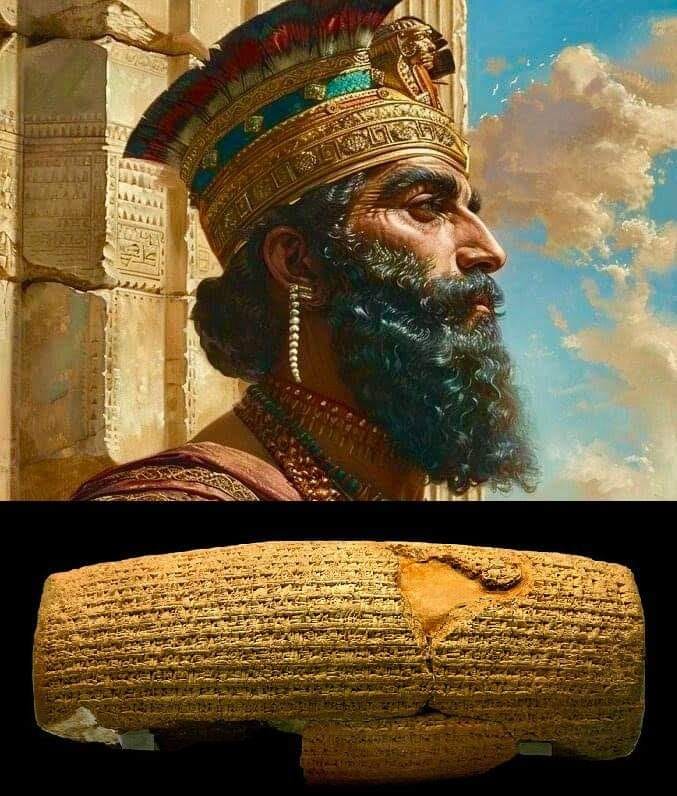The Cyrus Cylinder is an ancient clay artifact inscribed with a declaration from Persian Emperor Cyrus the Great following his conquest of Babylon (modern-day Iraq) in 539 BCE. Written in Akkadian cuneiform script, this significant artifact served as a foundation deposit after the Persian takeover of Babylon, marking the end of the Neo-Babylonian Empire and its incorporation into Cyrus’s Persian Empire.

The Cyrus Cylinder is often regarded as the world’s first Charter of Human Rights. It promotes religious tolerance and freedom, showcasing Cyrus’s progressive governance and his respect for diverse cultures. The text on the Cylinder extols Cyrus, outlines his genealogy, and depicts him as a king from a noble lineage. In contrast, the defeated Babylonian king Nabonidus is described as an impious oppressor with low-born origins, implicitly highlighting Cyrus’s royal heritage.
Furthermore, the Cylinder portrays Cyrus as the chosen one of Marduk, the chief Babylonian god, who tasked him with restoring peace and order to Babylon. This portrayal emphasizes Cyrus’s role as a benevolent and divinely appointed ruler.
Biblical scholars have traditionally viewed the text on the Cyrus Cylinder as corroborative evidence of Cyrus’s benevolent policies, particularly his repatriation of the Jewish people following their Babylonian captivity—a significant act also documented in the Book of Ezra. The Cylinder also details Cyrus’s efforts to restore temples and cult sanctuaries across Mesopotamia and the surrounding regions, further underscoring his commitment to religious and cultural restoration.
In essence, the Cyrus Cylinder stands as a testament to Cyrus the Great’s innovative leadership and his pioneering approach to human rights, religious freedom, and cultural respect.



